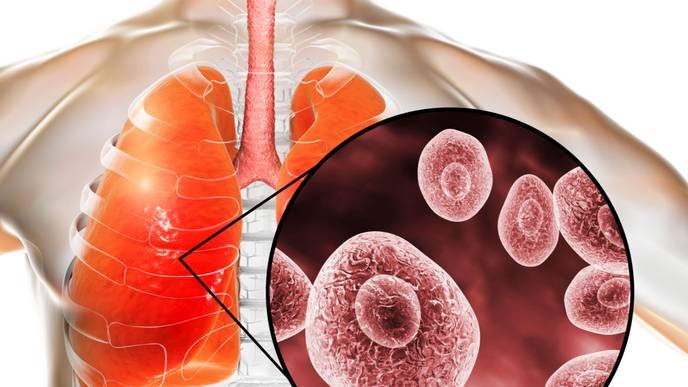B Cell Deficient Patients Gain Protective T Cell Immunity Following SARS-CoV-2 Vaccination and Infection, Study Finds

12/20/2023
B cell deficiency is a common condition that can result either from immunosuppressant drugs used to treat autoimmune disease or certain cancers — such as rituximab (RTX) — or from natural immune deficiency. These patients suffer from a weakened immune system that is less effective at combating both viral and bacterial diseases. As B cells are a key type of immune cell that produces antibodies, a deficiency results in a significant decrease in antibody count that can lead to severe disease or death upon infection with SARS-CoV-2.
Researchers at the Ragon Institute of Mass General, MIT, and Harvard; the Massachusetts Institute of Technology; the Koch Institute for Integrative Cancer Research; Monash University; and Mass General Brigham’s founding members, Brigham and Women’s Hospital (BWH) and Massachusetts General Hospital (MGH), have found that vaccination against or infection with SARS-CoV-2 produces a robust T cell response in B cell-deficient patients, providing reassuring evidence for the immunocompromised.
The findings, published recently in Science Translational Medicine, provide key insights regarding SARS-CoV-2 vaccination for patients with B cell deficiency as well as new understanding of immunodeficiency on a broad scale.
“We found that patients who are deficient in B cells, either by treatment or naturally, have T cell responses to SARS-CoV-2 infection or vaccination that were significantly elevated relative to healthy individuals,” says Gaurav Gaiha, MD, DPhil, faculty member at the Ragon Institute, assistant professor of medicine at Harvard Medical School, gastroenterology physician at Massachusetts General Hospital, and senior author of the study. “And in the vaccinated individuals, they had substantially better clinical outcomes even though they lacked anti-spike antibodies.”
Existing studies have previously explored the impact of COVID-19 vaccination in individuals with autoimmune disorders undergoing treatment with specific B cell-depleting antibodies. However, this study was the first to evaluate the impact of B cell deficiency following SARS-CoV-2 infection and to also evaluate the effect of vaccination on clinical outcomes in this immunocompromised population. Findings indicated that individuals with B cell deficiencies, even without detectable anti-spike antibodies, demonstrate heightened CD8 T cell responses to SARS-CoV-2 after prior infection or vaccination. Significantly, these individuals experience markedly reduced rates of hospitalization and moderate and severe COVID-19 after vaccination, despite the absence of detectable anti-spike protein antibodies.
“The question we had when we initiated the study was for these people who don't have B cells, and essentially will not make antibodies to either SARS-CoV-2 infection or vaccination — what's the outcome immunologically, and is there any clinical benefit for these B cell deficient patients to get vaccinated if they're not going to make antibodies?” Gaiha said. “And so I think the key result from our paper is that the answer is yes. Essentially, they should get vaccinated because they have much better clinical outcomes, likely due to these strong T cell responses. I think this study gives important clinical guidance to this particular immunocompromised patient population on this key issue.”
In summary, this research sheds light on the robust immune responses in B cell-deficient individuals following COVID-19 infection or vaccination. These responses, particularly the CD8 T cell reactions, contribute to a decreased risk of severe illness after vaccination, even in the absence of detectable antibodies.
The research was supported by awards from the National Institutes of Health; the Centers for Disease Control and Prevention; the Howard Hughes Medical Institute; the Burroughs Wellcome Fund; Howard M. Goodman Fellowship; the Ragon Institute of Mass General, MIT, and Harvard; the Mark and Lisa Schwartz Foundation and Enid Schwartz; the Lambertus Family Foundation; as well as Sandy and Paul Edgerly. Four authors reported relationships with pharmaceutical companies including AbbVie, Bristol Myers Squibb, Boehringer Ingelheim, Gilead Sciences, Merck, Moderna, and Pfizer.
About the Ragon Institute of Mass General, MIT, and Harvard
The Ragon Institute of Mass General, MIT, and Harvard was established in 2009 with a gift from the Phillip T. and Susan M. Ragon Foundation, with a collaborative scientific mission among these institutions to harness the immune system to combat and cure human diseases. Focusing on diseases of global importance, the Ragon Institute draws scientists, clinicians and engineers from diverse backgrounds and areas of expertise to study and understand the immune system with the goal of benefiting patients. For more information, visitwww.ragoninstitute.org.
About Massachusetts General Hospital
Massachusetts General Hospital, founded in 1811, is the original and largest teaching hospital of Harvard Medical School. The Mass General Research Institute conducts the largest hospital-based research program in the nation, with annual research operations of more than $1 billion and comprises more than 9,500 researchers working across more than 30 institutes, centers and departments. In August 2021, Mass General was named #5 in the U.S. News & World Report list of "America’s Best Hospitals." MGH is a founding member of the Mass General Brigham health care system.
Journal
Science Translational Medicine
Method of Research
Observational study
Subject of Research
People
Article Title
T cell responses to SARS-CoV-2 infection and vaccination are elevated in B cell deficiency and reduce risk of severe COVID-19
Article Publication Date
29-Nov-2023
COI Statement
Four authors reported relationships with pharmaceutical companies including AbbVie, Bristol Myers Squibb, Boehringer Ingelheim, Gilead Sciences, Merck, Moderna, and Pfizer.
Disclaimer: AAAS and EurekAlert! are not responsible for the accuracy of news releases posted to EurekAlert! by contributing institutions or for the use of any information through the EurekAlert system.

Facebook Comments